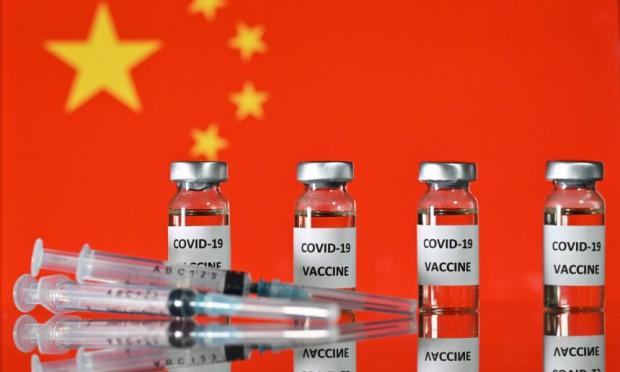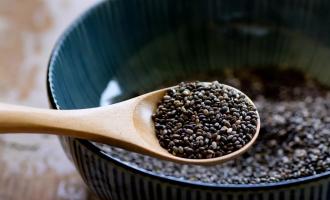On June 20, 2021 China claimed becoming the first country in the world to have administered one billion doses of COVID-19 vaccines. The Chinese official mouthpiece Global Times hailed the achievement as a "milestone" reached through China's thorough vaccination plan and effective implementation system. According to the National Health Commission of China, the country has already provided more than 1 billion (almost 40 percent of the global count) vaccine doses which puts it ahead of all other major countries of the world.
Though the Chinese media and institutions do not elaborate much on the efficacy of the two popular Chinese vaccines, Sinovac and Sinopharm, the results witnessed in other parts of the world show a disturbing trend. As per China’s Foreign Ministry spokesperson Zhao Lijian, China has provided more than 350 million doses of COVID-19 vaccines to the world. In the absence of many options, the countries in the Gulf region were amongst the first to adopt the Chinese doses. In 2020, Bahrain became one of the first countries to ask for China’s Sinopharm vaccine, granting it emergency use approval in December that year. The move was publically a huge boost for Beijing as there were always latent doubts on the efficacy of Chinese vaccines due to the absence of public safety and efficacy data. However, the country’s painful experience during the last six months has revealed how dangerous blind faith on China can be.
Finally in June 2021, the state agencies in Bahrain raised an alarm by announcing that certain high-risk individuals who have already received two Sinopharm jabs would be offered Pfizer-BioNTech doses. This was a clear indication that even two doses of the Sinopharm vaccine are not enough to tackle the new wave of coronavirus infections. At the time of this realisation, almost 50 percent of the country had been fully vaccinated. However that did not save the country from experiencing its worst wave of cases during May. In fact, the government had to implement a two-week lockdown in a bid to control the outbreak. An official of Bahrain health department stated that people fully vaccinated with Sinopharm who are over 50, with chronic illnesses or obese are being urged to get a booster of Pfizer-BioNTech six months after their last Sinopharm shot.
Like Bahrain, its neighbour United Arab Emirates also relied heavily on Sinopharm for its vaccination programme. However, UAE health authorities later decided to offer the third-dose Sinopharm booster shots starting mid-May. Studies on some of the fully vaccinated persons there showed that they had not developed sufficient antibodies.
However, Bahrain and UAE are not the only countries to have faced these issues from the Chinese vaccines. In the Seychelles, Chile and Uruguay, all of whom have either relied on Sinopharm and Sinovac in their inoculation programmes; have seen a rapid surge in cases even after covering a large chunk of their population. As is known, Indonesia is struggling with its worst Covid-19 outbreak to date, after registering over 21,000 daily infections earlier in the week. Driven by new variants like the Delta strain, its latest surge has overwhelmed hospitals. Chinese-manufactured vaccines make up nearly 60 percent of Indonesia’s confirmed dose orders. Sinovac, which was deemed halal by the country’s top Islamic body, accounts for 90 percent of the 104 million doses it had received as of June.
In clinical trials, Sinopharm’s efficacy in preventing symptomatic infection was a combined 78 percent in Bahrain, Egypt, Jordan and the UAE; Sinovac’s was 51 percent in Brazil, 67 percent in Chile, 65 percent in Indonesia, and 84 percent in Turkey. In comparison, both Pfizer and Moderna efficacy rates were over 90 percent. Although non-peer reviewed, the Uruguayan government released a study sometime in June 2021 reflecting that Sinovac reduced infections by only 61 percent. By contrast, the study showed an efficacy of 78 percent for Pfizer, while also lowering hospitalisations by 92 percent and deaths by 95 percent.
One common feature across the countries using Chinese jabs is the quick pace of vaccination in them. In the Seychelles, Chile, Bahrain and Mongolia, 50 to 68 percent of the population have already been fully inoculated, outpacing even the United States. However, all four ranked quite high among the countries experiencing their worst Covid outbreaks in June. By comparison, Israel used Pfizer and has 4.95 cases per million people, versus the Seychelles which used Sinopharm at 716 per million. This data sufficiently indicates that China put its resources and energy into mass production of the vaccine while the world was busy diligently undertaking trials of its vaccine candidates.
Probably, it is the access to the vaccine driven by mass production that is driving many countries towards Chinese vaccines irrespective of glaring deficiencies. A clinical epidemiologist at Ramathibodi hospital in Thailand Dr Pawin Numthavaj was recently quoted in the media saying that Thai authorities are “still considering Sinovac because it’s easier to procure”. He acknowledged that though the government had been looking for other manufacturers’ vaccines, but the other countries supplies had lengthy production wait times. The earliest arrival would be by the end of the year.
Undoubtedly then, the Chinese vaccine manufacturers were playing smart by cutting down the duration of trials and being lax in testing in order to outpace the world in terms of mass production of vaccines. However, the real cost of this strategy is being borne by the user countries, mostly developing ones who ignorantly or under compulsion have relied on these Chinese vaccines. The result is there for the world to see as these countries are now scrambling for effective vaccines to save their population who despite the jabs remain unprotected and under the grip of this deadly, possibly ‘Chinese’ virus.

Κόσμος
Ενημερώθηκε στις:
Chinese vaccines facilitate resurgence of the Covid-19 virus

Ακολουθήστε το Πενταπόσταγμα στο Google news













